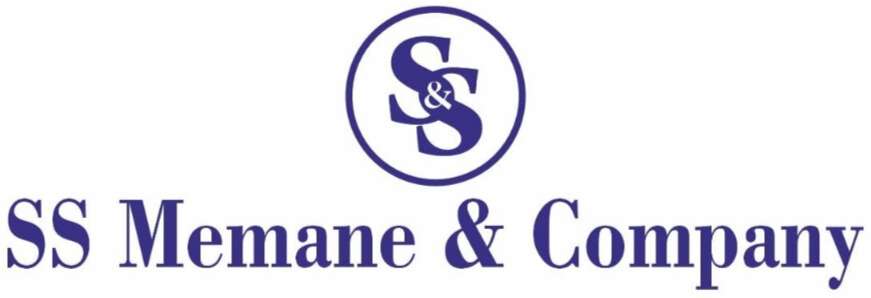Digital Signature Certificates
Quick Contact
Documents Required
- Pan Card
- Bank Certificate
- Aadhaar Card
- Digital Signature
Digital Signature Certificates
A Digital Signature Certificate (DSC) is an electronic form of a signature that provides authentication and integrity to digital documents and transactions. Issued by Certifying Authorities (CAs) in India, DSCs are used to sign documents digitally, ensuring that the information remains secure, and verifying the identity of the signer.
Types of Digital Signature Certificates
Class 1 DSC:
- Purpose: Used primarily for securing email communication.
- Verification: Provides a basic level of security by confirming the user’s name and email address.
- Applications: Suitable for individuals and organizations for secure email communication.
Class 2 DSC:
- Purpose: Used for online filings and submissions with various authorities.
- Verification: Requires more rigorous verification of the individual’s identity.
- Applications: Commonly used for filing Income Tax returns, GST returns, MCA (Ministry of Corporate Affairs) filings, and other statutory compliance processes.
Class 3 DSC:
- Purpose: Provides the highest level of security for online transactions.
- Verification: Requires the applicant to be physically present before the Certifying Authority to verify their identity.
- Applications: Used for e-tendering, e-procurement, patent filings, and high-value transactions.
Advantages :
Enhanced Security:
- Provides a secure way to sign documents, using encryption to prevent unauthorized access and tampering.
Authentication:
- Confirms the identity of the signer, ensuring that the document is signed by a verified individual or entity.
Legal Validity:
- Recognized under the Information Technology Act, 2000, giving the same legal standing as handwritten signatures.
Cost-Effective:
- Reduces the need for physical paperwork, printing, and courier services, lowering operational costs.
Time-Saving:
- Facilitates quick signing and submission of documents online, accelerating workflows and reducing processing time.
Disadvantages:
Initial Costs:
- The cost of obtaining a DSC, particularly Class 3, can be significant, especially for small businesses or individuals.
Renewal Process:
- DSCs have a limited validity (usually 1-2 years) and must be renewed periodically, incurring additional costs and administrative effort.
Technical Complexity:
- Requires specific software and technical knowledge, which can be challenging for some users to set up and operate.
Risk of Misuse:
- If not properly protected, a DSC can be misused by unauthorized individuals, leading to potential security breaches.
Dependency on Technology:
- Requires a stable internet connection and compatible devices, which may not always be available or reliable.
Required Documents:
For Individuals:
Identity Proof:
- PAN Card: A copy of your Permanent Account Number (PAN) card is mandatory.
- Passport: An alternative to the PAN card, if available.
- Driving License: Another valid identity proof option.
- Voter ID Card: Can be used as an identity proof.
Address Proof:
- Aadhaar Card: Most commonly accepted as both identity and address proof.
- Utility Bill: Electricity, water, or gas bill not older than 3 months.
- Bank Statement: With the applicant’s name and address, not older than 3 months.
- Passport: Can serve as both identity and address proof.
- Driving License: If not used as identity proof.
Passport Size Photograph:
- A recent passport-sized photograph for the application.
Email ID and Mobile Number:
- A valid email ID and mobile number for communication and verification purposes.
For Organizations:
Organization’s Documents:
- PAN Card of the Organization: A copy of the organization’s PAN card.
- Certificate of Incorporation: Issued by the Ministry of Corporate Affairs (MCA) or other relevant authority.
- Memorandum and Articles of Association: Certified copies of the company’s Memorandum of Association (MOA) and Articles of Association (AOA).
- Authorization Letter: A letter authorizing the individual to apply for DSC on behalf of the organization, signed by a director or authorized signatory.
Individual’s Documents:
- PAN Card: A copy of the applicant’s PAN card.
- Identity Proof: Passport, driving license, or Aadhaar card of the applicant.
- Address Proof: Aadhaar card, utility bill, or bank statement of the applicant.
Organization’s Address Proof:
- Utility Bill: Recent utility bill in the name of the organization.
- Bank Statement: Latest bank statement with the organization’s name and address.
Board Resolution (if applicable):
- A board resolution authorizing the issuance of DSC to the applicant.
For Foreign Nationals:
Passport: A copy of the passport is mandatory.
Visa: A copy of the visa is required.
Address Proof:
- Bank statements, utility bills, or any other proof of address in the foreign country.
Identity Proof:
- Any government-issued identity proof from the foreign country.
Recent Photograph:
- A passport-sized photograph of the applicant.
Email ID and Mobile Number:
- Valid email ID and contact number for communication.
Steps to Submit Documents for DSC:
Fill out the DSC Application Form:
- Download and complete the DSC application form available on the Certifying Authority’s website.
Attach the Documents:
- Attach self-attested copies of the required documents along with the completed application form.
Submit to Certifying Authority:
- Submit the application form and documents either online or at the office of the Certifying Authority.
Verification Process:
- The Certifying Authority will verify the documents, and if everything is in order, the DSC will be issued.
Receive the DSC:
- Once verified, the DSC will be sent to the applicant via email or through a USB token, depending on the chosen mode of delivery.
- Copyright 2024 © SS Memane || Designed By || Mr. Sunil Memane


